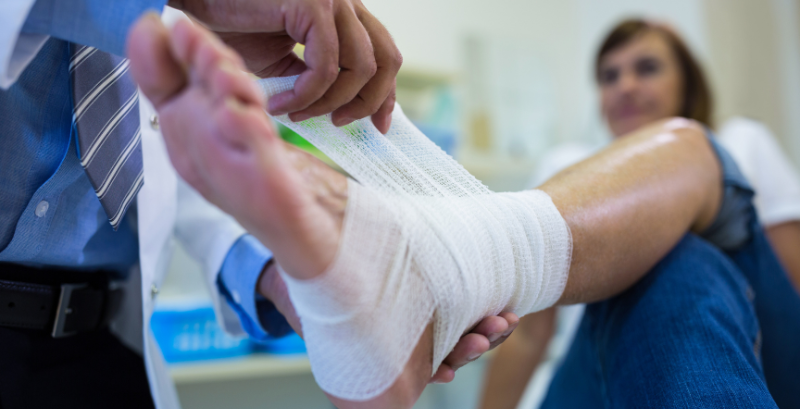Many times, personal injury cases are settled out of court. But what happens when Boston personal injury firms decide to go to trial? What can you anticipate as the person filing the lawsuit, also known as the plaintiff, in a personal injury trial?
Personal injuries are physical harm that can occur from car accidents, fires, gunshot wounds, poisonings or drug overdoses, injuries from sharp items, being hit by an object, or even tripping on the sidewalk, among other causes.
Sometimes, injuries happen by accident, but they can also be a result of self-harm or deliberate assault.
According to the State Highway Safety Report (2021) by Massachusetts Department of Transportation, in Massachusetts, injuries are sadly the main cause of death for individuals between one and 44 years old, and they rank as the third most common cause of death for people of all ages.
Not only that, but the report also adds that injuries are a leading reason for around 700,000 hospital stays and visits to the emergency room every year.
Some of these personal injury cases are settled outside of court, while others are taken to trial.
Let’s break down the different stages of what happens when a personal injury case goes to trial:
Jury Selection
The initial stage of a trial is jury selection, whose purpose is to ensure that a fair and impartial jury is selected.
This procedure typically starts with a large group of potential jurors, drawn from the local community, who are brought to the courtroom. The judge and attorneys for both the plaintiff (the person who has filed the lawsuit) and the defendant (the person or entity being sued) will question these potential jurors to assess their backgrounds and beliefs.
Questions could cover a wide array of topics, but the aim is to uncover any biases or preconceived notions that could interfere with a juror’s ability to objectively weigh the evidence.
Jurors may be dismissed for cause if they have a particular reason for not being able to stay unbiased, such as a personal relationship with one of the parties involved.
Each side can also use a certain number of peremptory challenges, which allows them to dismiss jurors without stating a reason. The final jury should consist of individuals who can fairly and impartially consider the evidence and reach a verdict.
Opening Statements
The opening statement is each side’s opportunity to present a summary of what they believe the evidence will show.
Think of it as a roadmap or preview of their case. Boston personal injury firms representing a plaintiff go first and outline what they plan to prove. They might detail the circumstances of the injury, the damages suffered by the plaintiff, and how they believe the defendant is at fault.
Next, the defense attorney will deliver their opening statement. They might challenge the plaintiff’s version of events, dispute the alleged damages, or introduce other factors that could affect liability.
Here, it’s important to note that opening statements are not considered evidence – they are simply each side’s way of framing what they believe the evidence will show.
Testimony
The testimony phase of a trial is when witnesses are called to provide their account of events. These witnesses may include the plaintiff, the defendant, eyewitnesses, medical professionals, and expert witnesses who can provide specialized insight into specific aspects of the case, like the plaintiff’s medical condition or the mechanics of the accident.
The attorney who calls the witness will begin by asking them a series of questions in a process called direct examination.
After the direct examination, the opposing attorney has the chance to question the witness in a process known as cross-examination.
Cross-Examination
Cross-examination is a critical component of the trial process. During cross-examination, the opposing attorney will question the witness to challenge their credibility, recall, or interpretation of events. This could involve highlighting inconsistencies in the witness’s testimony, exposing biases, or questioning their expertise.
The aim is to cast doubt on the reliability of their testimony.
Closing Arguments
Once all the evidence has been presented, each side will deliver their closing arguments. This is each attorney’s final opportunity to address the jury directly.
They will summarize the evidence, highlight key pieces of it that support their case, and explain how the evidence should be interpreted in the context of the law.
This is their chance to convince the jury to decide in their favor.
Verdict
Following the closing arguments, the jury will retire to a private room to deliberate. They will evaluate the evidence, discuss their interpretations, and make a decision.
The decision, or verdict, will be based solely on the evidence presented during the trial.
In the End
In a personal injury case, the jury will determine whether the defendant was at fault for the plaintiff’s injuries and, if so, how much in damages the defendant should pay. The jury’s decision must meet a certain standard known as the “preponderance of evidence,” which means that it’s more likely than not that the defendant is liable.
If you have a personal injury case, find and hire Boston personal injury firms to get the verdict in your favor.
FAQs
Q: What is a trial in a personal injury case?
A personal injury trial is a legal proceeding to resolve a dispute where a plaintiff claims injury caused by the defendant’s negligence and seeks compensation.
Q: What is the work of a personal injury lawyer?
A personal injury lawyer represents clients who have suffered physical or psychological injuries, often due to another party’s negligence. They handle case preparation, negotiation, and trial proceedings to seek compensation.
Q: Why choose a personal injury lawyer?
Choosing a personal injury lawyer is important as they have specialized knowledge in tort law, help navigate complex legal procedures, negotiate with insurance companies, and work towards obtaining the maximum possible compensation for their clients’ injuries.
Keep Reading
Want more? Here are some other blog posts you might be interested in.




